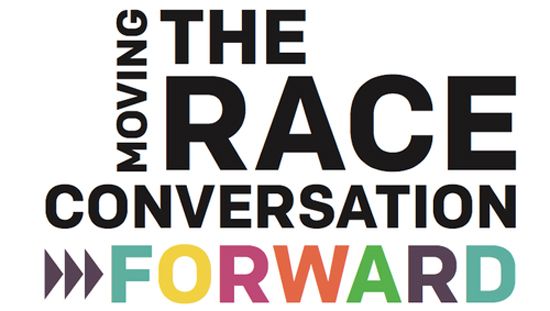I make no secret about being a fan of Jay Smooth’s. I regularly use his video commentaries about race and other social justice issues in the classroom.
“Jay Smooth” is the deejay moniker of John Randolph, who founded and hosts New York City’s longest running hip-hop radio program “Underground Railroad” on Pacifica Radio station WBAI-FM. He’s a blogger at hiphopmusic.com, and Ill Doctrine, and probably best known for his widely distributed video commentary “How To Tell Someone They Sound Racist”
I’m always looking for new tools to use to encourage thoughtful discussion about race, racism and racial relations, and browsing Jay Smooth alerted me to the report issued this year by Race Forward: The Center for Racial Justice Innovation , entitled “Moving the Race Conversation Forward” which is something I recommend you read and pass on to others if you haven’t read it already.
analyzed nearly 1,200 newspaper articles and transcripts from cable TV outlets from 2013, and found that two thirds of race-focused coverage either emphasized alleged individual racism or prioritized voices that dismissed the persistence of racism as a significant force in our country today.
The report refers to this kind of coverage as “systemically absent” content, in contrast to “systemically aware” content that at least highlights policies and practices such as racial profiling or voter suppression that lead to racial disparities. As the latter term is defined, the media didn’t have to explicitly use terms like “institutional racism,” “structural racism” or “systemic racism” to be classified as “systemically aware,” but even with this low bar, the performance was poor.
You can download the two sections of the report separately.
Part One includes:
Content analysis of mainstream media: Two-thirds of race-focused media coverage fails to consider how systemic racism factors into the story, instead typically focusing upon racial slurs and other types of personal prejudice and individual-level racism.
Seven harmful racial discourse practices, which reinforce the common misconception that racism is simply a problem of rare, isolated, individual attitudes and actions: Individualizing Racism, Falsely Equating Incomparable Acts, Diverting From Race, Portraying Government as Overreaching, Prioritizing (Policy) Intent over Impact, Condemning Through Coded Language, and Silencing History.
Mainstream media coverage of race and racial issues shapes much of how our citizenry thinks about, reacts to and discusses these issues, from the NY Times, FOX, CNN and MSNBC, to local papers. As bloggers and blog readers we often react to this coverage, as well as reporting on the same stories. The report gives us insights into how we can do better too.
The second half of the report looks at actions.
Part Two features case studies and profiles of recent interventions and initiatives advanced by the racial justice field to challenge mainstream discussions of race and racism, and the negative policy impacts that dominant frames and narratives have on people of color. They include: Drop the I-Word, Migration is Beautiful, ALEC on the Run, Fruitvale Station, and Ending the Schoolhouse-to-Jailhouse Track.
Jay Smooth introduces the report:
Cross-posted from Black Kos

9 comments